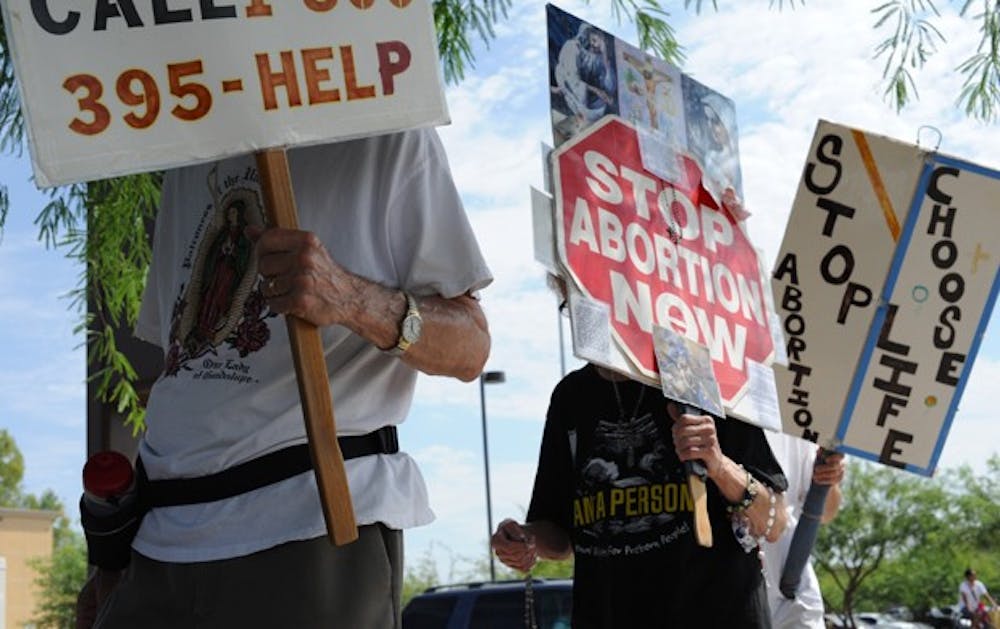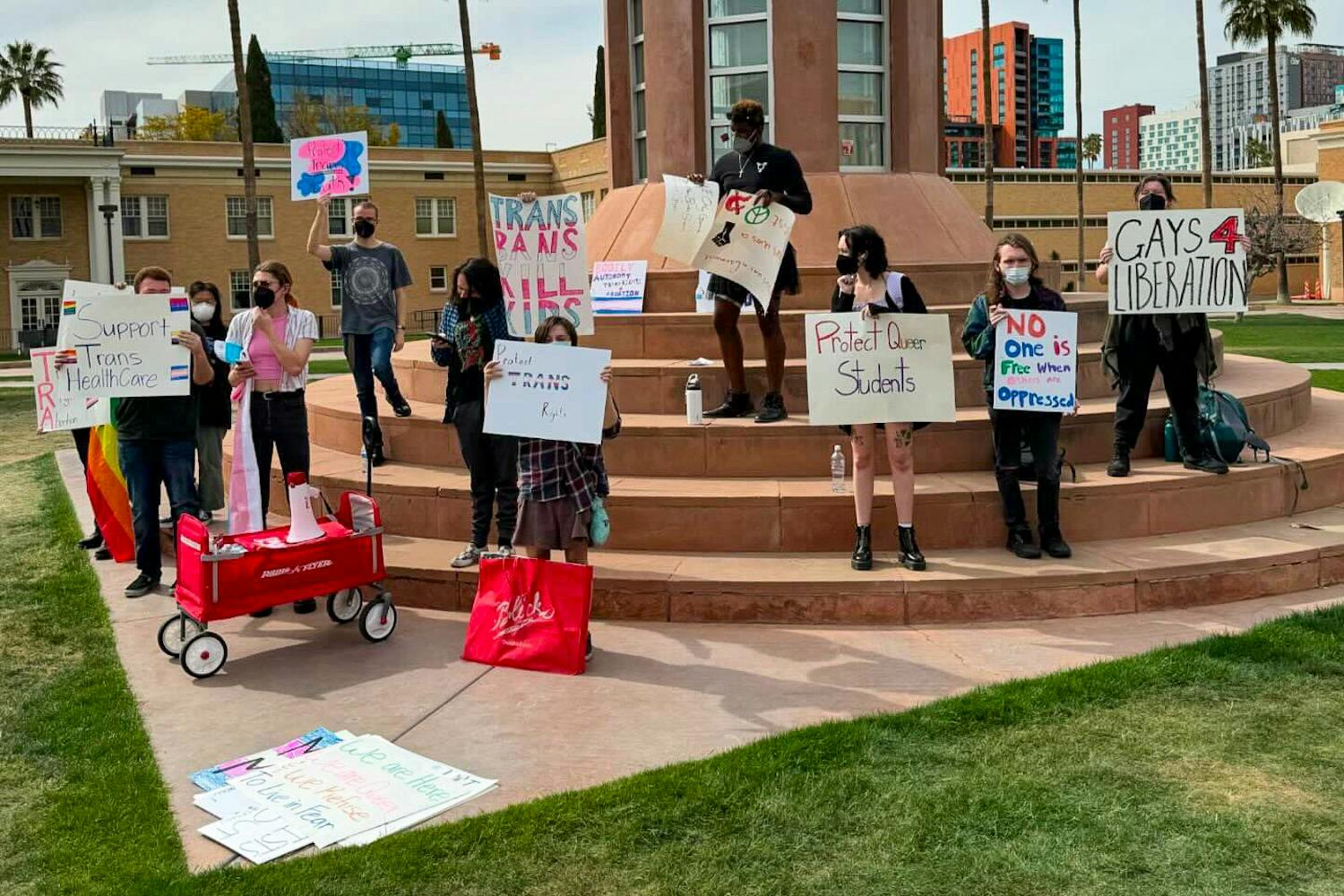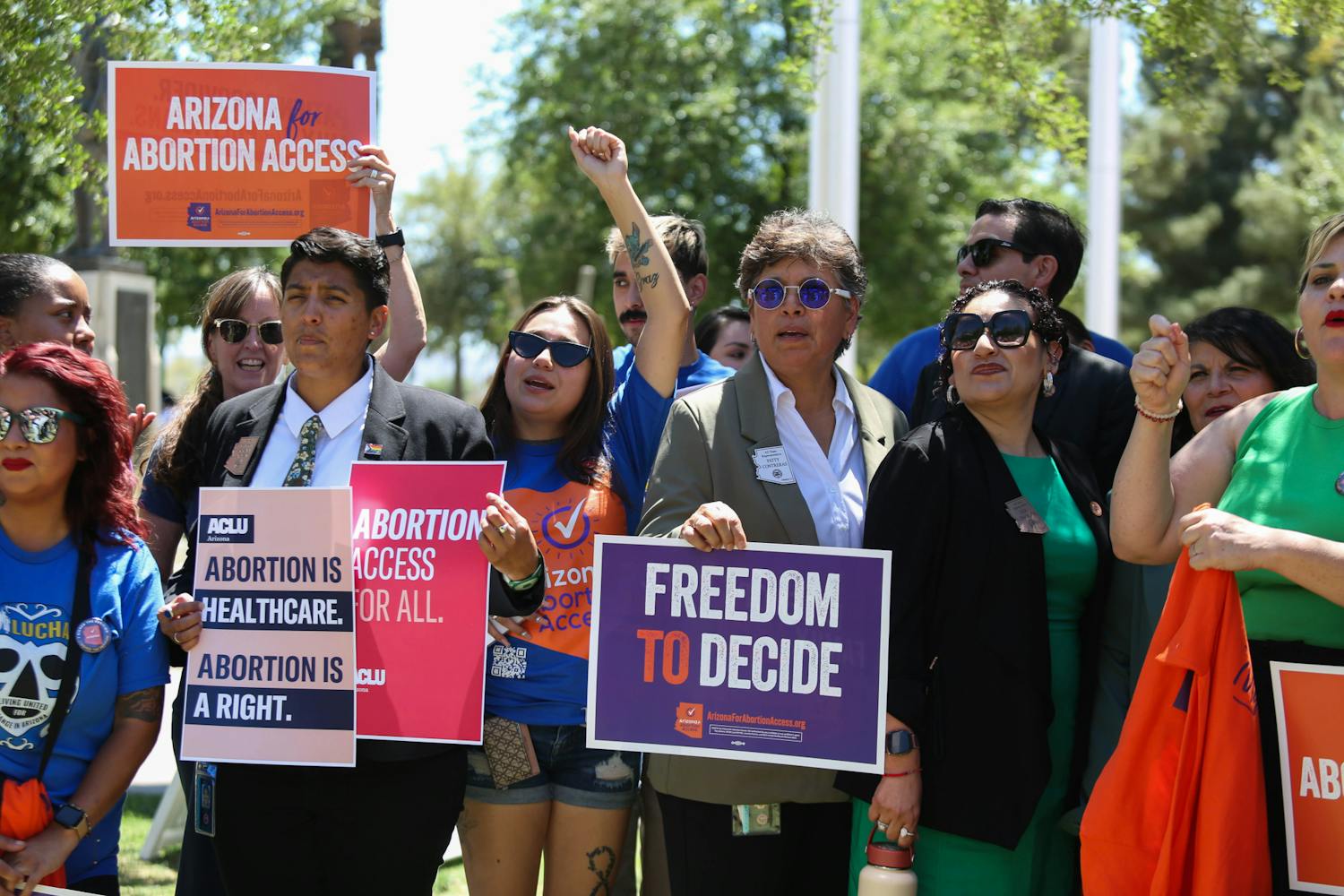Everyone is aware of the U.S. Supreme Court's 1973 Roe v. Wade case, which ruled the 14th Amendment protected a woman’s choice to have an abortion. But it’s a little more difficult to keep up with the heaps of legislation that have come in the decades since – time in which states have started taking the controversial matter into their own hands.
With a republican-dominated state legislature and an openly pro-life governor, Arizona has seen a growing interest in bills concerning abortion and women’s healthcare. Here are a few of them, simplified.
Arizona House Bill 2384
This bill, which passed April 5, will ban public funding or tax credits from being given to any group that provides, promotes, pays for or gives referrals for abortions, as well as ban state universities and community colleges from using state funding or tuition money to train students to perform abortions.
Nancy Barto, the state senator who co-wrote the bill, wrote on her website that the bill is meant to “protect our federal tax dollars from subsidizing the abortion industry.” While many in Arizona do not want their taxpayer money to directly pay for an abortion, the effects of the bill could ripple further than expected.
“The denial of state funds to organizations that even provide referrals to abortion services is an (unacceptable repeal) of civil liberties,” says Ann Koblitz, ASU professor of women and gender studies. “Abortion is legal in this country, after all, and clinic personnel should have the right to discuss a perfectly legal medical procedure with their clients.”
Another concern has been if the university-funding section of the bill will affect students in medical school for gynecology or obstetrics. While abortion training is not required for a school to be accredited, many at the University of Arizona have voiced concerns about how this could affect the nearly 200 students currently in the school’s OB-GYN residency program.
In some cases, an emergency abortion is required to save a mother’s life, and while students do receive training about emergency prenatal care, lack of abortion-specific training could leave some future doctors confused at the least – and unprepared in emergencies at the worst. The bill will also prevent students from using even their own tuition or fees to pay for abortion training, so the only option will be to go outside of the school for independent training.
Arizona HB 2416/SB 1246 and SB 1030
HB 2416 and SB 1246 passed together April 2, and will require doctors to perform an ultrasound an hour before an abortion so a woman may see and hear the heartbeat of the fetus. It also expands the definition of abortion: clinics, which were formerly allowed to administer abortion medication, will no longer be able to. And a judge is now required to appoint a guardian for a minor seeking an abortion without her parent’s consent. SB 1030 passed April 19, and it will ban physician’s assistants from prescribing or administering abortion pills.
Gov. Jan Brewer’s press release for the former bills calls them “Pro-Life Legislation that Strengthens Informed Consent, Protects Women.” Most legislators working to pass these bills state they are in the interest of women’s health, but there is debate over how making a woman hear her fetus’s heartbeat is protecting her: similar bills have been passed, stopped, modified and essentially forgotten in the past.
As for abortion by pill, the Arizona Department of Health Services reported that of the nearly 10,000 abortions performed in the state in 2009, more than half were by pill. Medical abortion, as opposed to surgical, allows women less than nine weeks pregnant to take two pills – one at a clinic and one at home – which induce her body to abort.
At a hearing early this year against SB 1030, Planned Parenthood Arizona medical director DeShawn Taylor said the law would make it difficult for women in rural areas to get a medical abortion because there are so few doctors. Women would have to drive to Phoenix or Tucson to see a doctor, which may impact their original decision or add stress to an already emotional choice. In June, Planned Parenthood Arizona filed a lawsuit against the state, challenging the constitutionality of each of these bills.
Legislation requiring minors to be appointed a guardian has passed three times before in Arizona, but has been overturned or modified by the courts each time. Proponents say it helps minors make a more informed decision, while critics argue it too is just a way to intimidate girls under 18 from getting an abortion.
-
Arizona HB 2443
As of March 29, this bill made it a felony for doctors to perform abortions on women looking to abort based on the sex or race of the fetus. It is the first law of its kind in the nation. While discrimination has occurred in China, opponents of such bills argue there is no evidence of it happening in the United States.
“HB 2443, with its proscriptions against performing abortions because of the sex of the fetus, could very well mean that immigrant Asian women will be turned away by physicians who are afraid to be accused of performing illegal abortions, because the stereotype in the U.S. is that sex-selective abortion is endemic in Asia,” Koblitz says.
Supporters of the bill say it is a reaction to the fact that minority women are more likely to get abortions than other races, but critics say this issue is more complicated than the race or sex of the fetus.
“Affluent women can always get access to safe abortion services,” Koblitz says. “It is poor women, especially women of color, who are the targets of these draconian policies, and they are the ones who will suffer the most.”
“No one views abortion as the ideal solution for women; no one wants to see rates of abortion increase,” Koblitz says. “But taken together, these bills … make it more difficult for doctors, midwives, nurses, and community activists to meet the health needs of poor women, adolescent women, and women of color in Arizona.”
Reach the reporter at kaila.white@asu.edu





